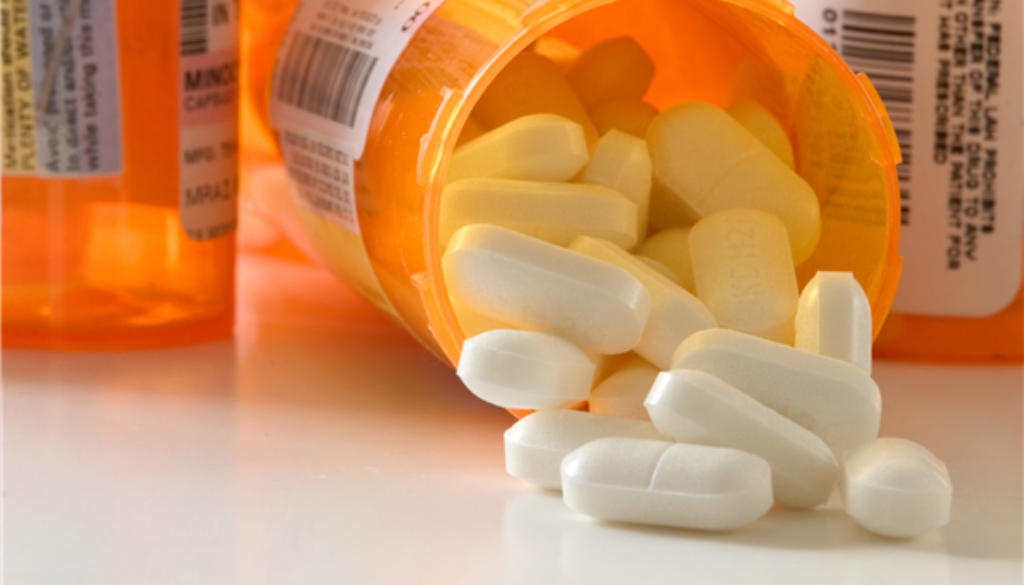Why Antibiotics Aren’t Always the Right Choice for Sinus Infections
The massive headache. The constant runny nose. The nagging cough.
Sinus infections have a way of making you absolutely miserable, and you may expect a series of antibiotics would speed the healing.
Not so fast.
Antibiotics are incredibly overprescribed in America and around the world, and it is causing a major health care crisis.
The problem is so prevalent that the U.S. actually has established an Antibiotic Awareness Week every November to make patients and providers alike aware of the issue.
Don’t misunderstand: Antibiotics are an important tool and they can save lives. However, they aren’t always appropriate. If they are overused, there is a risk of developing antibiotic-resistant bacteria. Eventually, antibiotics won’t be effective against these “super bugs.”
In addition, there are risks of serious side effects, and misuse of antibiotics can potentially lead to other health problems that we are still in the process of fully understanding.
Most importantly, antibiotics are not effective against a viral infection. It’s estimated that over 95% of “sinus infections” are caused by viruses.
We’d like to take a moment to review why antibiotics aren’t necessarily the best choice for fighting your sinus infection and provide important information you can use.
But what are the differences between viruses and bacteria?
The Differences Between Viruses and Bacteria
WHAT ARE BACTERIA?
These microorganisms have one single cell and can thrive in a variety of environments, including extreme heat or cold.
Not all bacteria are bad—some reside in your intestine to help process your food. In fact, most bacteria are benign, causing no harm at all. The bacteria that normally reside on your skin, and in your ears, nose, sinuses, throat, and intestine are part of your “microbiome.”
Like a fingerprint, everyone’s microbiome is unique, and these microbes actually play a vital role in keeping your body healthy! Interesting fact – the amount of DNA from your microbiome adds up to many times more than your own human DNA!
It’s important to note that there are also many types of “bad” bacteria However, there are some that can cause dangerous infections like:
- UTIs (Urinary tract infections)
- Strep throat
- Tuberculosis
These are just a few of the types of infections caused by bacteria that need to be treated with antibiotics in order to prevent serious health problems or even death.
WHAT ARE VIRUSES?
These are organisms even smaller than bacteria. They require living hosts in order to reproduce. Without infecting animals, plants or people, viruses can’t survive.
Viruses work by bombarding your cells, effectively “taking over” and causing your cells to produce more of the virus.
Some diseases caused by viruses are:
● The common cold
● Chickenpox
● AIDs
● The flu
● The measles
● COVID-19
Antibiotics Aren’t Effective Against Viruses
There is a difference between conditions caused by a virus and bacteria, the main one being that antibiotics are only effective against bacteria. Another difference is that while viral illnesses will typically resolve with time and supportive treatment, bacterial infections will often progress rapidly and can cause dangerous health problems if they are not treated with the correct antibiotic. Fortunately, this is not common with sinus infections.
Provided you are generally healthy without any serious, chronic illnesses, most viral infections will go away in five to seven days. Granted, those days may make you miserable, but antibiotics do nothing to speed your healing.
Less commonly, viral infections can sometimes take weeks or months before they fully resolve. Examples of viral illness that can be prolonged include the flu, COVID-19, and mononucleosis.
It may also surprise you to learn that taking antibiotics for sinus infections isn’t always the best choice.
Why Does Taking an Antibiotic for Sinus Infections Make Me Feel Better?
We get this question a lot. The truth is, they don’t. The virus actually is going away on its own thanks to the response from your own body’s immune system.
Remember, antibiotics also can come with side effects such as:
- Nausea
- Diarrhea
- Indigestion
- Loss of appetite
- Vomiting
These potential side effects are another reason we don’t want you to prescribe an antibiotic unless it’s absolutely necessary, and it’s clear it will be effective.
In addition, according to the Centers for Disease Control, about 1 in 15 people will have an allergic reaction to certain antibiotics. These reactions can range from very mild to concerning.
Serious adverse reactions can include a dangerous intestinal infection called C. diff colitis, heart rhythm abnormalities, tendon rupture, blood vessel tear (aneurysm), and throat swelling (anaphylaxis) just to name a few.
While it’s relatively rare that serious, life-threatening allergic reactions will occur, we want you to contact us if you’re having any trouble tolerating an antibiotic so we can keep you safe and healthy.
Finally, when you take an antibiotic, because it kills bacteria, it causes unintended but significant damage to your microbiome. There is still much to be learned about our microbiome and what happens when it is damaged, but more and more research is showing links between damage to the microbiome and the development of chronic diseases like asthma, diabetes, and inflammatory bowel disease.
Of course, the risk of damaging your microbiome by taking antibiotics is well worth taking if you are trying to get rid of a dangerous bacterial infection. But if you have a viral illness, the risk may not be worth taking.
If you are taking an antibiotic, consider taking a probiotic at the same time, if this is ok with your doctor. The probiotic will help replenish the “good bacteria” in your body that are killed by the antibiotic and may help to decrease side effects.
HOW DOES A BACTERIA BECOME RESISTANT TO AN ANTIBIOTIC?
When you take an antibiotic, your intestine breaks down the medicine into molecules that are then delivered throughout your body via your bloodstream. These molecules are designed to then enter the cells of bacteria in your body and disrupt their metabolism, thereby killing the bacteria.
Rarely, and by chance, there could exist a bacteria with a random genetic mutation that allows it to be unaffected by the antibiotic molecule. This “lucky” bacteria could survive the course of antibiotics and then multiply and spread, especially since all the other bacteria it normally competes with are now all dead. The more antibiotics are used, the higher the chance this type of thing could happen. This is how the bacteria called MRSA (methicillin-resistant staph aureus) developed and has spread all over the world.
So What Should I Do if I Have a Viral Infection?
First, we want you to realize that we want to be your medical home. If you ever have issues with your sinuses or other ENT issues, we want to know. We want to establish a long-term relationship with you so we can best address all your needs.
Second, realize that your viral infection will eventually go away on its own, but in the meantime, there are a few things you can do to make you feel better and help your body’s immune system.
HERE ARE 5 THINGS YOU SHOULD DO IF YOU HAVE A VIRUS
- Rest. Rest is what your body needs so your immune system can have the energy it needs to fight the virus.
- Eat healthy foods. We know that you may not have much of an appetite if you have a virus, but your body needs healthy food to give you the nutrients you need to stop the virus. Avoid the temptation to eat sugary “comfort foods.”
- Hydrate. It’s very important that you keep your fluid intake, even if you don’t feel thirsty. Water and other fluids can help dilute your mucus secretions. Avoid alcoholic drinks and those with caffeine.
- Alleviate some symptoms with medication. While antibiotics won’t have any effect on a virus, there are some over-the-counter medications that may help ease your symptoms. Talk to us. We’ll be happy to give you information and suggestions.
- Stay at home!This is the time to take one of your sick days. Don’t go to work or school if you have a virus. Depending upon the type of illness you have, you may still be contagious. Your coworkers will appreciate your staying home. If that is not a possibility, speak to your supervisor about working remotely.
Self-Care for Sinusitis
As we mentioned, antibiotics aren’t always the right choice for fighting sinusitis, and if this is a viral infection, your body’s immune system will fight it off in about a week.
In addition to the five instructions outlined above, there are also some steps you can take to feel better if you have sinus problems. These include:
KEEPING YOUR SINUS CAVITIES MOIST
A hot shower can help. You can also breathe in hot water vapor from a bowl of hot water while draping a towel over your head. The purpose is to loosen mucus so it can drain.
WARM COMPRESSES
Applying these to your face can relieve facial pain.
NASAL IRRIGATION
This can help clear your sinus passages and keep them moist. We’ve compiled a useful article of all you need to know about nasal irrigation to help you.
OTC MEDICATIONS
Medications that can help alleviate a sinus infection include nasal steroid sprays like Flonase or Nasacort, decongestants, Tylenol and/or ibuprofen, zinc, vitamin C, and herbal medicines like echinacea.
IMPORTANT NOTICE
If you have a sinus infection that is not getting better with supportive/OTC treatment, and you are concerned you may have a bacterial infection that needs stronger treatment, please contact our office and schedule an appointment so we can evaluate you and determine the best course of treatment. If you have a sinus infection and develop worsening symptoms on one side of your nose/face, high fever, severe headache, neck stiffness, eye/facial swelling, or vision changes, call our office immediately or seek care promptly in a nearby emergency room.
Do You Have Chronic Sinus Infections? These May Be the Cause
Does it seem that every other month you’re battling your sinuses? If so, there’s likely an underlying cause. At Raleigh Capitol Ear, Nose and Throat, our leading otolaryngologists have the information, experience and compassionate care you need.
Some of the most common causes of chronic sinus infections include:
The septum is the part of the nose that divides it into the left and right nostrils. Sometimes, this “divider” is crooked or may even have a hole in it. Any problems with the septum make it difficult for the sinuses to drain properly.
Chronic Allergies
While spring and fall may get the most coverage for worst allergy seasons, problems created by allergens actually go on throughout the year. The most effective treatment is to find the cause of your problems through allergy testing.
Once we determine the source of your allergies, we can help you through immunotherapy treatment.
These are small growths of tissue inside your nose. While they are rarely cancerous, they can cause problems with breathing, even leading to sleep apnea.
These polyps make it difficult for the sinuses and your nose to drain, setting the stage for chronic infections.
See Why We’re the Leading Ear, Nose and Throat Doctors in Raleigh
For decades, we’ve specialized in helping adults and children with a variety of illnesses, whether that means assisting them through the inconvenience of allergy season or providing facial plastic surgery.
Our physicians are nationally recognized experts who are dedicated to providing the timely, effective and compassionate care you deserve.
Scheduling an appointment is easy. Contact us today. We would consider it a privilege to care for you.




